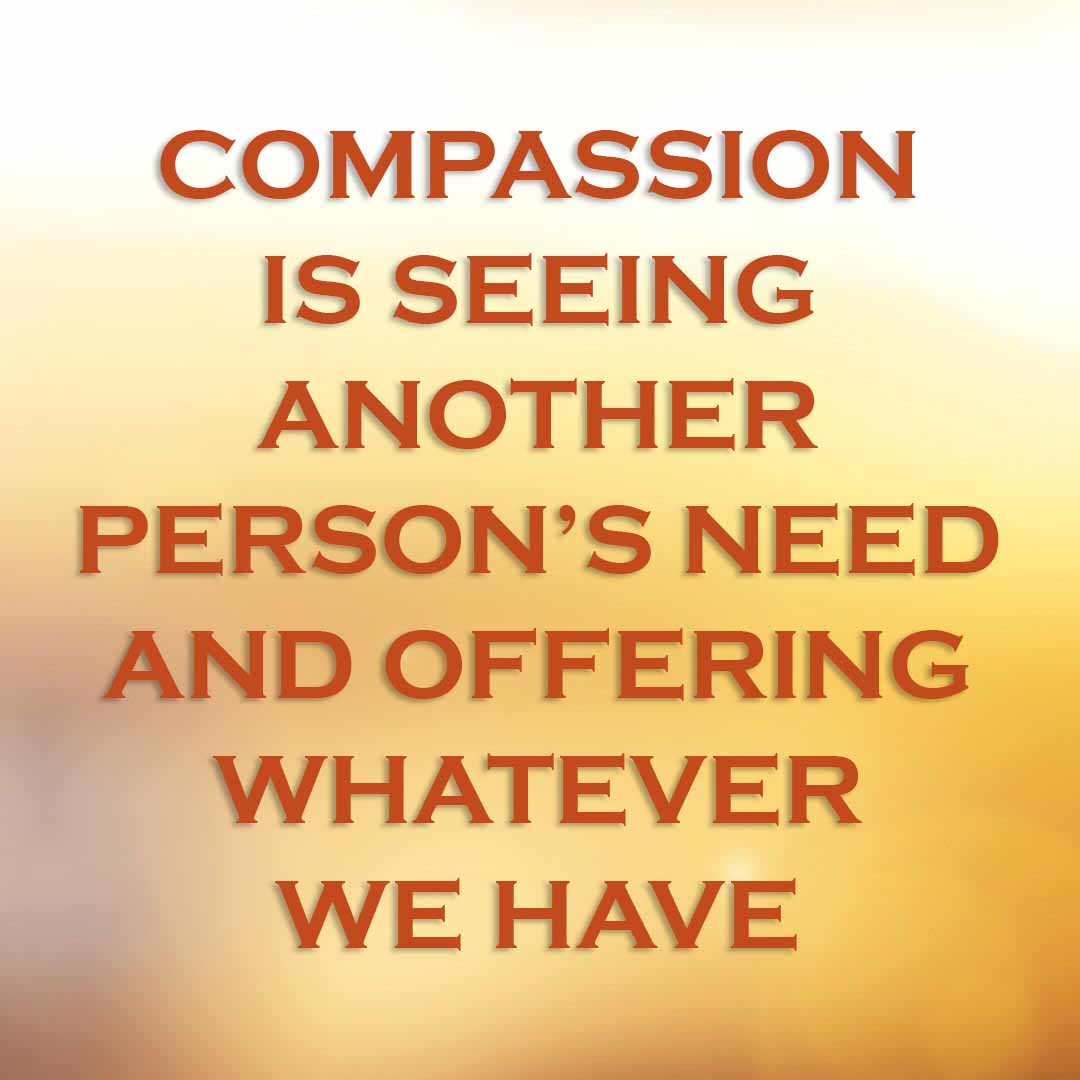Something is changing in the Western world. Increasingly, police departments find themselves disparaged and defunded. Politicians curb law enforcement budgets, and prosecutors release criminals who end up rearrested the next day. Open borders make it difficult to control human smugglers, sex traffickers, and dangerous drugs. We never know what will provoke rioting in our streets and violence in our neighborhoods.
Jesus predicted this cultural decay in the Olivet Discourse. He said, “Because lawlessness will abound, the love of many will grow cold.” (Matthew 24:12). The word “because” implies a cause-and-effect relationship. Lawlessness creates lovelessness, and lovelessness produces more lawlessness. The further our culture moves away from God, the further it moves from His love and goodness.
How can we live the Golden Rule in a world where wrong is right and right is wrong?
1. We Live the Golden Rule by Praying for Others
2. We Live the Golden Rule by Loving God Above All Else
3. We Live the Golden Rule by Loving Our Neighbor
4. We Live the Golden Rule by Loving Our Enemies
5. We Live the Golden Rule by Maintaining Unity in the Body of Christ
Caveats to Living the Golden Rule:
1. Living the Golden Rule Requires Discernment
2. Living the Golden Rule Requires Moral Purity
3. Living the Golden Rule Requires the Whole Counsel of God’s Word
One of the best ways we can make a difference is to express God’s love by living the Golden Rule. Jesus taught, “Therefore, whatever you want men to do to you, do also to them, for this is the Law and the Prophets” (Matthew 7:12). From the Ten Commandments to the Golden Rule, the thread of love runs through Scripture.
5 Ways to Live the Golden Rule
1. We Live the Golden Rule by Praying for Others
Living the Golden Rule in a tarnished culture begins with placing Matthew 7:12 in context. Notice the “Therefore” at the beginning. The Golden Rule is best understood as an extension of Jesus’ teaching on prayer and a lesson in the second commandment to love others.
Matthew 7:7 provides the backdrop to the Golden Rule. It says, “Ask, and it will be given to you; seek, and you will find; knock, and it will be opened to you.” This short verse includes three imperative commands: “ask,” “seek,” and “knock.” All three words are in the present tense, indicating a continuous action. God wants us to keep asking, seeking, and knocking on behalf of others, just as we do for ourselves.

A response from God accompanies each command in verse 7. His people receive what they ask for, find what they seek, and face open doors. John 15:7 says, “If you abide in Me, and My words abide in you, you will ask what you desire, and it shall be done for you.” We can change the world by praying for its police, politicians, prosecutors, human smugglers, sex traffickers, cartels, and victims. God answers prayer.
Recommended Reading: “How to Pray to God”
2. We Live the Golden Rule by Loving God Above All Else
A lot of good has happened in the world because most of us learned as kids, “Do unto others as you would have done unto you.” It’s the Golden Rule in a nutshell and a great way to live. But the Golden Rule only works within the confines of our love for God. When a scribe asked Jesus about the greatest commandment, He replied,
The first of all the commandments is: “Hear, O Israel, the Lord our God, the Lord is one. And you shall love the Lord your God with all your heart, with all your soul, with all your mind, and with all your strength.” This is the first commandment. And the second, like it, is this: “You shall love your neighbor as yourself.” There is no other commandment greater than these. (Mark 12:29-31; see also Deuteronomy 6:5)
When asked about the greatest commandment, Jesus said to love God and others—in that order. And in Paul’s instructions on personal relationships, he said the only way to fulfill the requirements of God’s law is to love our neighbor as we love ourselves (Romans 13:8-10). It is fascinating to consider that something as complex as the Old Testament law can be summarized in one simple word: love.

3. We Live the Golden Rule by Loving Our Neighbor
One day a professional student of the Hebrew Scriptures started a conversation with Jesus about Deuteronomy 6:5 and asked, “Who is my neighbor?” (Luke 10:29). According to Luke, the man was testing Jesus. Still, his question is critical for any believer who is serious about their faith. It’s impossible to love our neighbor without knowing who he is. Jesus responded by telling the parable of the Good Samaritan, which teaches us several things about our neighbors.

Perhaps more than any other story in the Bible, the Good Samaritan illustrates how our relationship with God affects our relationship with other people. Compassion is about the moment. It’s seeing another person’s need and offering whatever we have—money, talent, encouragement—to meet that need. If Almighty God has given us resources, it is because He wants us to use some of them for the benefit of others.
Recommended Reading: “What Is the Fruit of the Spirit and How Do I Grow It?”
4. We Live the Golden Rule by Loving Our Enemies
For many, the idea of loving a “neighbor” is challenging enough. But Jesus stretched the requirement of love even further by telling us to love our enemies as well:
I say to you, love your enemies, bless those who curse you, do good to those who hate you, and pray for those who spitefully use you and persecute you, that you may be sons of your Father in heaven; for He makes His sun rise on the evil and on the good, and sends rain on the just and on the unjust. For if you love those who love you, what reward have you? Do not even the tax collectors do the same? And if you greet your brethren only, what do you do more than others? Do not even the tax collectors do the same? (Matthew 5:44-46).
Picking up on Jesus’ teaching in the Sermon on the Mount, Paul wrote, “Bless those who persecute you; bless and do not curse…. Repay no one evil for evil. Have regard for good things in the sight of all men…. Therefore ‘If your enemy is hungry, feed him; if he is thirsty, give him a drink; for in so doing you will heap coals of fire on his head’” (Romans 12:14, 17, 20). The Bible presents an ethical standard foreign to the world’s way of thinking. It is not enough to tolerate an enemy’s actions or to accept them with a view toward God’s intervention and justice. Christians are to defy all cultural norms by repaying evil with good (Romans 12:21).
Love is a defining characteristic of God’s people (John 13:35). If we only love people who are easy to like, then we are no different from unbelievers. It takes godliness to love our enemies.
Recommended Reading: “8 Signs You’re in a Spiritual Battle and How to Win”
5. We Live the Golden Rule by Maintaining Unity in the Body of Christ
Loving the people who hurt us is a tall order. But did you ever consider that Jesus instituted communion—a symbol of unity—on the night Judas betrayed Him? Paul wrote, “The Lord Jesus on the same night in which He was betrayed took bread; and when He had given thanks, He broke it and said, ‘Take, eat; this is My body which is broken for you; do this in remembrance of Me’” (1 Corinthians 11:23-24).
Betrayal is the most devastating breach of a relationship because it involves someone close to us. But even as Judas was preparing to betray Jesus, our Lord didn’t think of Himself. He thought of us. Jesus knew how important it would be for the Church to live in unity and to remember His death.
It’s difficult to watch the world disconnect itself from God. When chaos creeps into our lives and hurts the people we love, it’s even more difficult. But we are not powerless! We have the DNA of Jesus Christ because we are part of His Body. The Lord Jesus loves us that much.
Recommended Reading: “Revelation’s 7 Promises to Every Believer”
Caveats to Living the Golden Rule
If we want to demonstrate God’s love in a world of lawlessness, the Golden Rule is one of the best places to start. But there are a few things to keep in mind.

1. Living the Golden Rule requires discernment.
If we fail to consider someone’s personal preferences, we might treat them the way we would like to be treated, but it will not honor them. An introvert might enjoy nothing more than to have their calendar cleared for a quiet evening at home, while an extrovert prefers spending a night on the town. And the expensive study Bible on our wish list makes an audacious gift for a Muslim neighbor. Before trying to meet another person’s needs, we must understand their heart.
2. Living the Golden Rule requires moral purity.
In a world of lawlessness, many people—including some Christians—want to give full vent to their anger and indulge their sinful desires. By no means does Jesus’ teaching allow us to encourage people toward immoral behavior. The prophet Isaiah made it clear: “Woe to those who call evil good, and good evil; who put darkness for light, and light for darkness; who put bitter for sweet, and sweet for bitter! Woe to those who are wise in their own eyes, and prudent in their own sight!” (Isaiah 5:20-21)
3. Living the Golden Rule requires the whole counsel of God’s Word.
Some people try to distill the entire Bible down to the Golden Rule. Believing kindness is the cure to the world’s troubles, they put their faith in philanthropy and encourage others to do the same. But the Golden Rule does not include all the principles of morality. Being a good person will not get you into heaven. It has no power to forgive sins or justify us in the sight of God. The Golden Rule is an essential principle in Jesus’ teaching, but we cannot make it the end-all of spirituality.
Putting another’s needs ahead of our own requires a commitment to love, prayer, and discernment. But when we allow God to work in us, according to His will and good pleasure (Philippians 2:13), we become “children of God without fault in the midst of a crooked and perverse generation, among whom [we] shine as lights in the world, holding fast the word of life” (Philippians 2:15-16).
Here’s a simple principle: light shines the brightest in the darkness. The darker the night, the brighter the light. In a world frozen by lawlessness and lack of love, we can radiate the spiritual warmth that comes with the Gospel–the warmth of community, kindness, fellowship, and intimacy with our Creator. Let us make it our goal to shine the light of the Gospel through our loving kindness each day.

